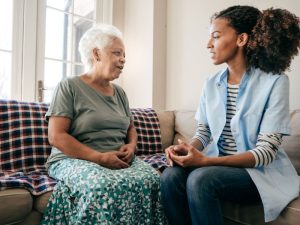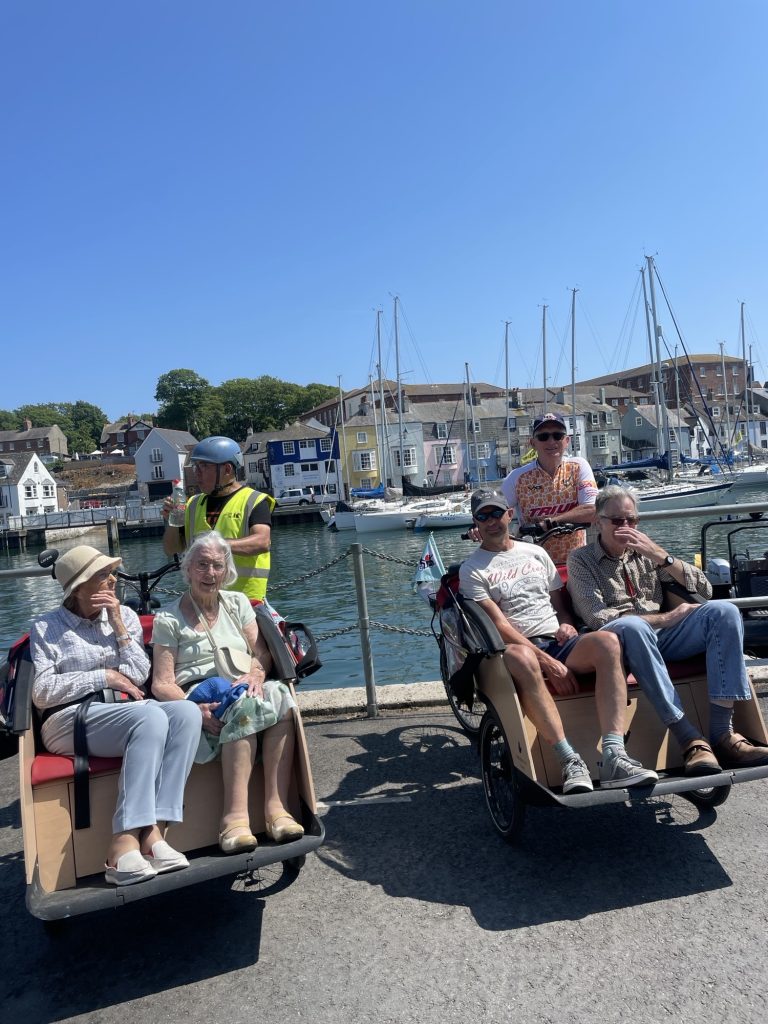
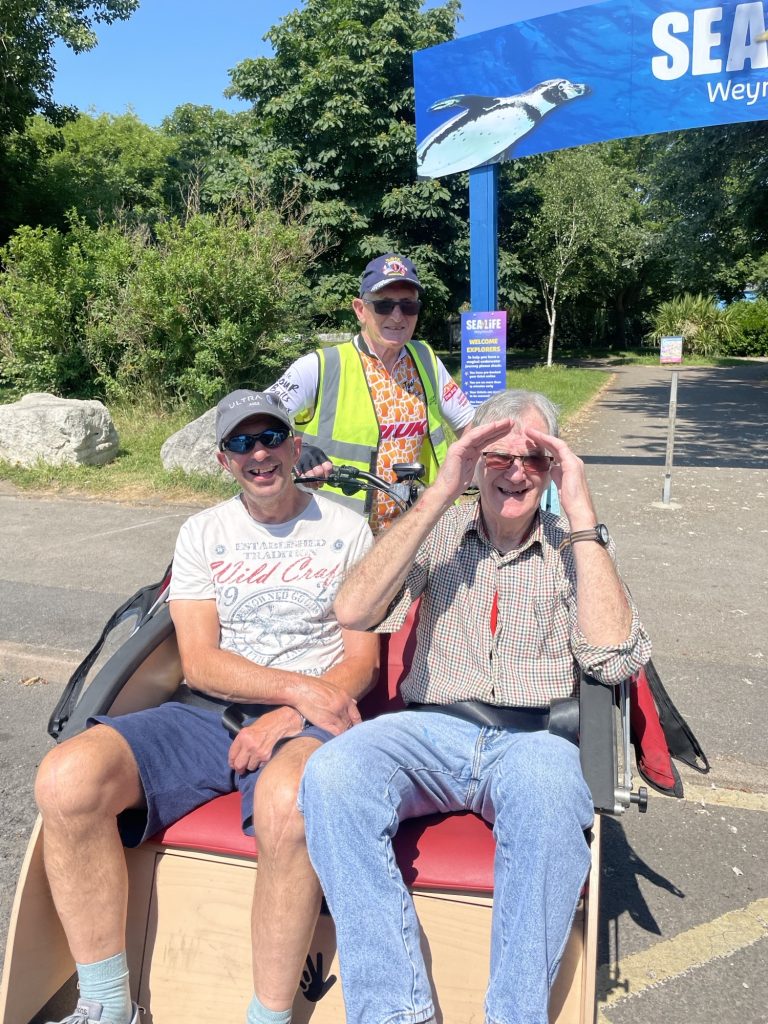
Residents from Steepleton Manor Care Home had a wonderful day out. They went on a special adventure with the help and support of an amazing local charity – Cycling Without Age in Weymouth. They rode together in a trishaw bike to enjoy the beautiful weather we’re having and the fresh air.
Lisa Mathews, our activities coordinator, joined the residents on their exciting 14-mile journey. Volunteers from Cycling Without Age made sure that each resident had a chance to enjoy this invigorating experience as they felt the wind in their hair and a sense of freedom during the ride.
The experience started by the beautiful seafront in Weymouth, passing along the seafront and the busy harbour then following the Rodwell trail to Ferrybridge. The residents had the chance to see the beauty of nature and enjoy the peaceful sights and sounds around us.
We cycled through Radipole Park and eventually returned to where we started at Lodmoor. The residents’ smiles showed how much they had connected with the world around them and experienced the simple joys that we often overlook, like the sounds of nature and the sight of flowers. It was clear that getting out in the fresh air had a profound impact on them. They slept well that night.
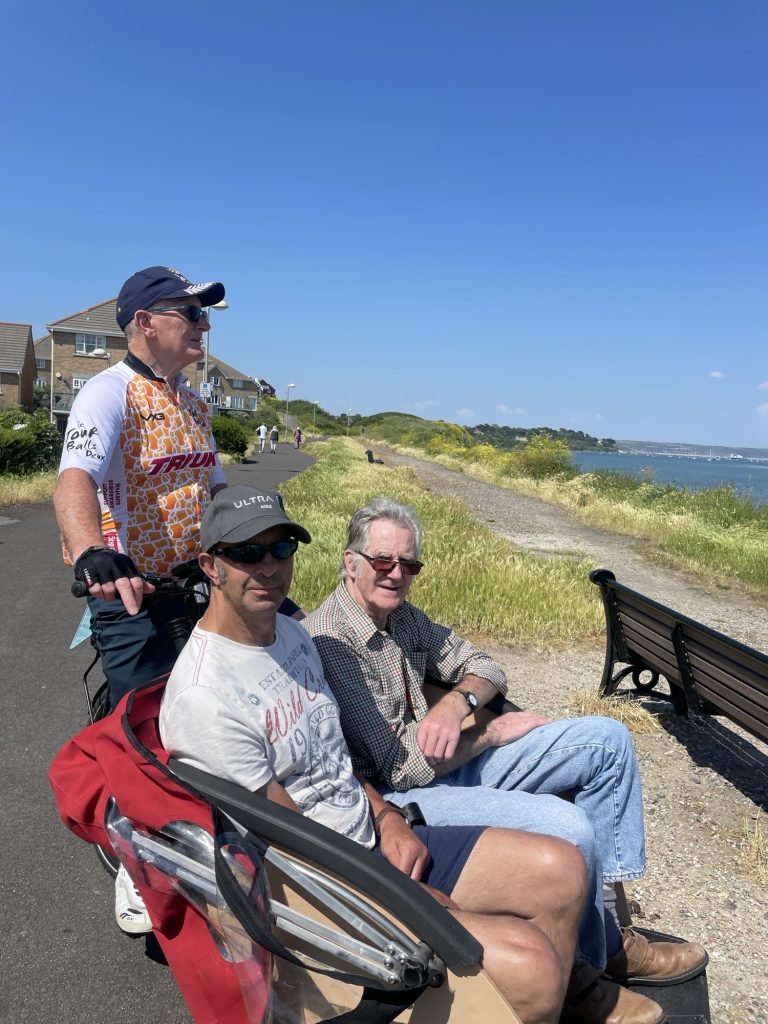
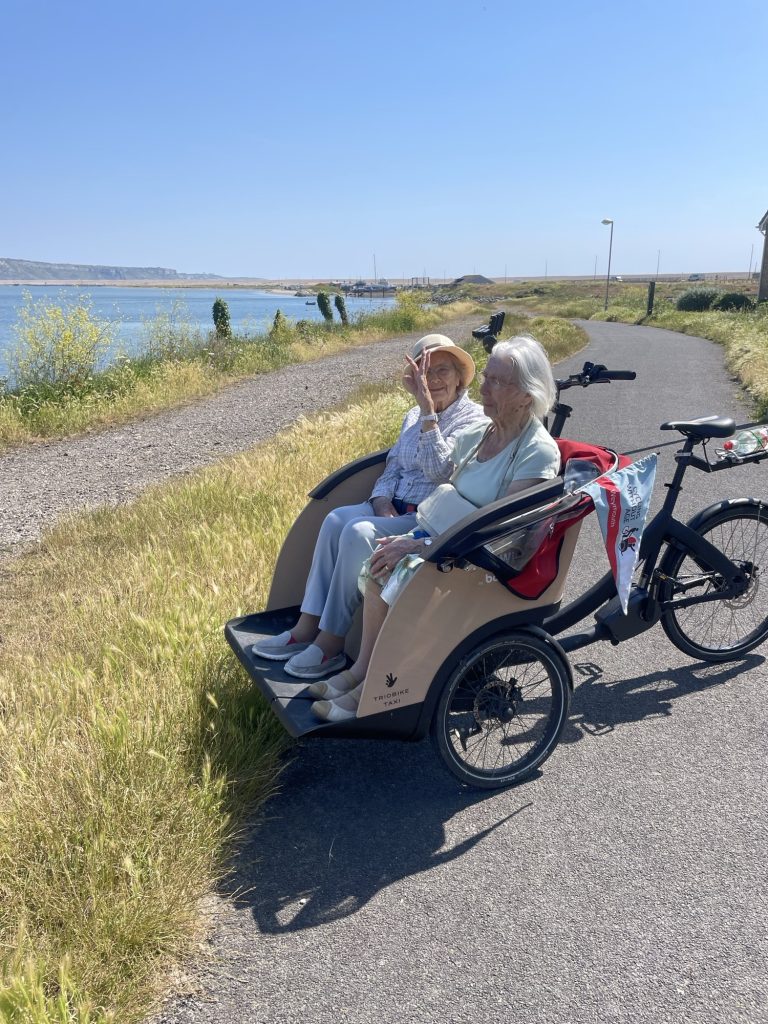
This inspiring story reminds us that everyone deserves the chance to enjoy the outdoors, regardless of their age or circumstances. Exercise and fresh air are beneficial for everyone, enriching lives and creating a stronger sense of community.
Getting together really supported individuals to feel part of a group, and combat the feelings of loneliness and isolation.
So, let’s ask someone to step outside with us, take a deep breath, and embrace the many benefits that nature offers and feel more fulfilled and less lonely.
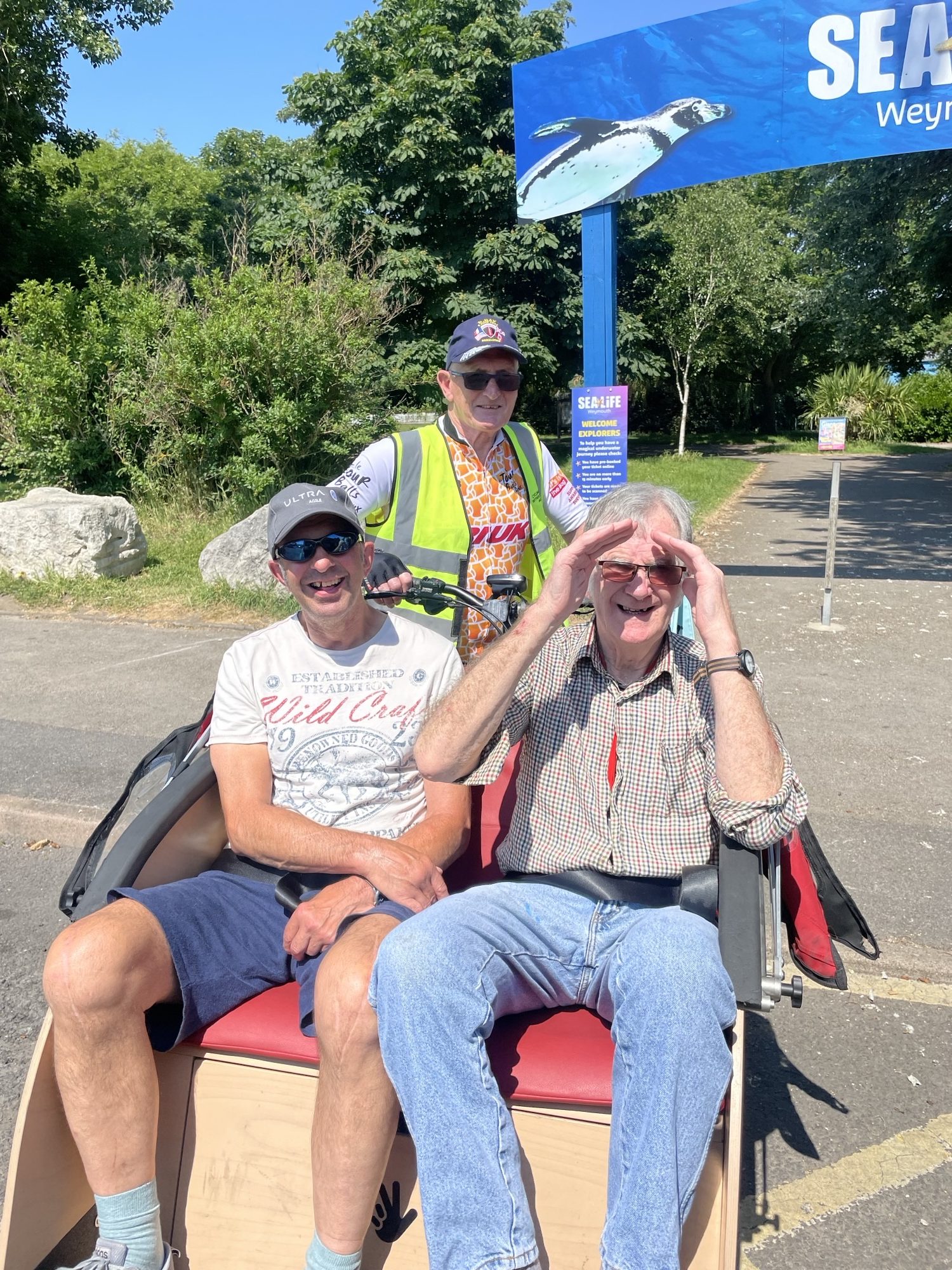
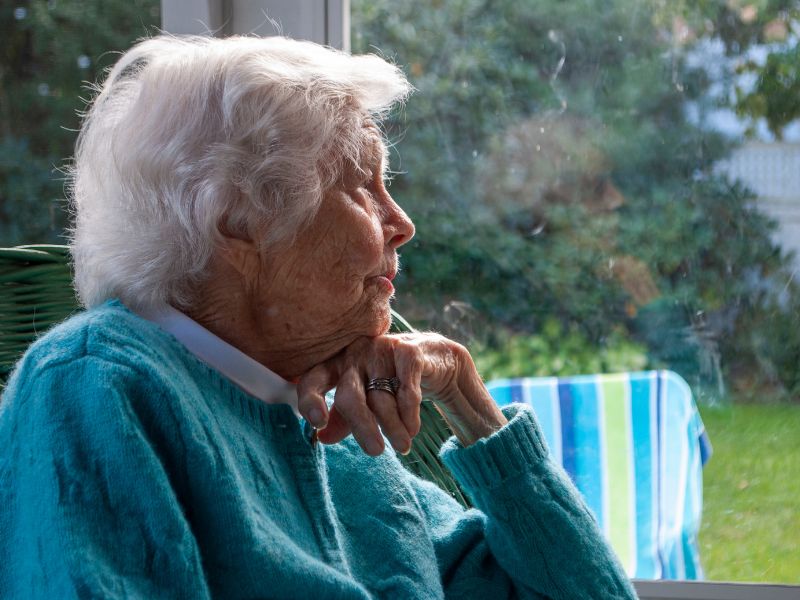
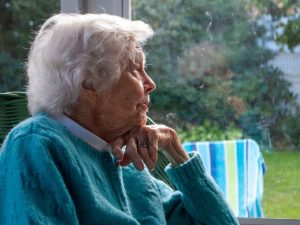 Loneliness is definitely something that many people experience in later life. Perhaps a partner has passed away and other family members live too far away to visit often. Reduced mobility can also make it harder to get out and meet people and socialise.
Loneliness is definitely something that many people experience in later life. Perhaps a partner has passed away and other family members live too far away to visit often. Reduced mobility can also make it harder to get out and meet people and socialise. The Marmalade Trust defines loneliness as a mismatch between the level of social contact we have and the level we’d like to have. There’s a strong personal element as some people need company more than others.
The Marmalade Trust defines loneliness as a mismatch between the level of social contact we have and the level we’d like to have. There’s a strong personal element as some people need company more than others.